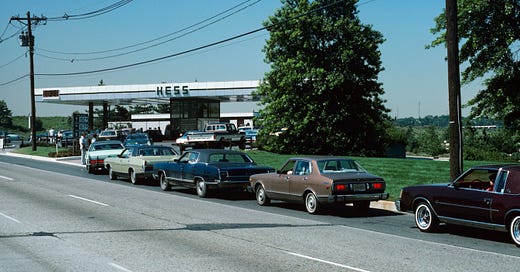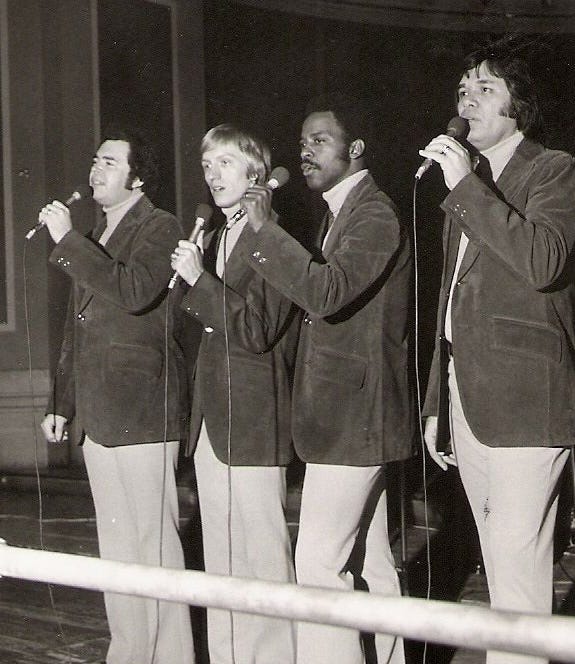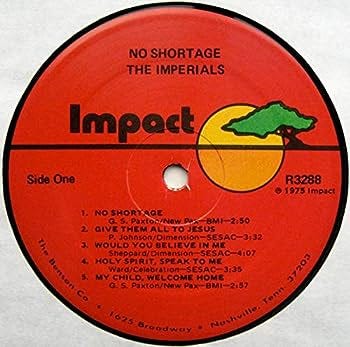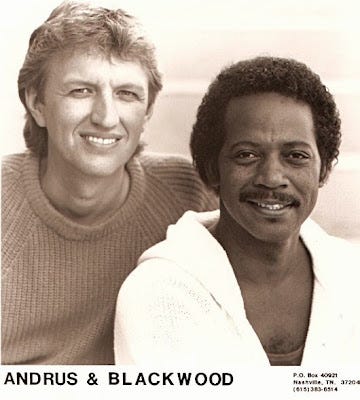Another “Music Monday” post, in which I go through the album of a vintage Christian band to show how I’ve used it in my spiritual life, despite its light upbeat patina. If you have objections to CCM, I strongly suggest you read my post “In Defense of Christian Music” first.
In our family, my job of teaching high school has had the unintended effect of recovering summertime. When June comes around, my older children swap their part-time jobs for full-time ones while the younger children and I stay home, putter around on the homestead in the morning, and in the afternoons hunker down in the air conditioning as the Virginia humidity rolls in. Summer is a time when we simplify: we put away schoolbags, socks, and comforters, wear brighter clothing, and listen to music. Inevitably I reach back to music that my brain has tagged as belonging to a previous summer in my life. As we know, music captures memories and the sound of a few bars of yesteryear’s tunes can retrieve experiences, good and bad. And today’s album brings back the 1970s and the Motown sounds I love. If that’s your vibe (and I know it’s not everyone’s!) I hope you’ll give this one a listen.
It was the summer of 1979 and our family did not own a home air conditioner, and we certainly did not have one in the car. I was nine years old and I remember sitting in the back seat, sweat from my back pooling on the vinyl seats, leaning out the window and staring at the line of cars that inched forward towards the gas pump. The gas shortage was on, and my mother and her children sat in a hot car for hours in a line of automobiles inching forward, hoping to get something in the tank before the pumps ran dry. Tempers flared and the everyone had the opportunity to exercise the virtue of patience—a real workout. It was a year where many people changed their politics—my parents were moved to become Reagan Democrats and later Republicans.
It was also the year my dad brought home the first album by the Imperials that ever I remember hearing. Released in 1975, it was even more pertinent that hot summer four years later. Listening to it today on YouTube, its relevance remains, at least for me.
In Imperials fashion, the members take turns leading the songs, with the rest providing harmonies and echoes, but their Black lead singer Sherman Andrus is prominent in most songs, and I imagine he provides the funk and soul of this album, backed up by Jim Murray, Terry Blackwood, and Armond Morales. Its theme for a fracturing society is an invitation to encounter God, repent, convert, and seek brotherhood. As I said, the theme remains pertinent today.
I’ll share a few of the tracks, but if you want to listen to the whole album, it’s below.
The Imperials were masters of the unique opening. The album’s signature song begins with rhythmic group humming and a beat, then there’s a furl of piano and snaps of electronics, and the album takes off.
There's a shortage on fuel oil,
And there's a shortage on gas,
There's a shortage on wood,
And there's a shortage on glass.
Things that we've wasted are now precious to buy—
You know there's even a shortage on the air in the sky!
But I know a good thing that there's no shortage of:
There's no shortage on God's mercy!
There's no shortage on God's love!
The song is sung mostly in chorus with lead Sherman Andrus echoing the final riffs with his usual snappy impromptus.
God is love and mercy unending!
His precious love will lead you, no doubt!
When from Satan you need defending,
God has supply that will never run out!
If there is a society that is in desperate need of mercy, it’s us. In a culture that kills something like 6000 babies a day through contraception and abortion, where the numbers of child sex slaves worldwide dwarf the numbers of American slaves at the height of Southern slavery, we are in dire need of mercy! And God has offered it, through the Divine Mercy chaplet offered to the world via St. Faustina, through a Year of Mercy, through the open door of the confessional.
But we in America are no longer a moral people, and judgment is rolling out. During these heated days before judgment, we should be grateful indeed that there’s still no shortage on God’s mercy and love, if we will only respond.
This light but heartfelt song is another call to conversion, which is sung to the many frantically bubbly people living in the moment, who are outwardly happy but inwardly despairing. I’m not sure of the singer, but it might be Terry Blackwood.
Are you tired of chasing pretty rainbows?
Are you tired of spinning round and round?
Pick up all the shattered dreams of your life
And at the feet of Jesus, lay them down.Give them all, give them all, give them all to Jesus:
shattered dreams, wounded hearts, broken toys.
Give them all, give them all, give them all to Jesus!
He will turn your sorrow into joy.
I’ve mentioned that one reason I started searching YouTube for vintage Imperials was because fragments of songs kept coming to mind as I worked through various tragedies in my own life. This song contained one:
He never said there’ll only be sunshine,
He never said there’ll be no rain.
I needed to find out what the song said next. When I finally found it after much internet searching (in the days of the early 2000s, it was hard to find vintage CCM online), they were puzzling:
He only promised
A hеart full of singing
About the very thing
That once brought pain.
I was too close to tragedy to understand these words at first, but now, over a decade later, I have begun to understand them. Embracing God in the midst of tragedy, allowing it as a manifestation of His mysterious permissive will—it sounds facile to try to summarize those years into this phrase!—ultimate drew me and my family closer to God in a way that years of serene acts of faith and calm resolutions could not have done.
As a result of tragedy, my life does not make sense apart from God. As a result of tragedy, I experienced, not for the first time, the knowledge that I wasn’t merely pretending to be Catholic: I truly belonged to Christ and that it was His hands holding me.
At the time, people commented to me that I “had such faith,” but their words bewildered me. All I knew was that we must say, with Job, “The Lord has given: the Lord has taken away: blessed be the name of the Lord.” I have no doubt the prayers of so many people—family, friends, and strangers—worked to hold us up. And looking back, I surprisingly value the journey through the dark valley because I treasure the closeness to Christ which came from it.
No song lyric can truly capture grief nor the other side of it, which is a reality that in so many ways is beyond language and intellect—but this fragment of song floated on the surface during the storm in my mind, and it ultimately formed some sense out of it, heart sense if not intellectual sense.
Track 3: Would You Believe in Me?
This album is frankly evangelical, designed to prompt the listener to conversion, and the three songs represent an invitation to belief, an experience of repentance, and a welcome to the prodigal son. Andrus sings the words as though he is Christ speaking with irony to the listener:
If I could work a miracle before your eyes
If I could change the rain to clear blue skies
If I could open up your blinded eyes to see,
Would you believe in Me?
If I could part the sea or roll back the tide,
If I could let you touch the hollow of my side,
If I could hang for you upon a rugged tree,
Would you believe in Me?
Child, you've been a-runnin' away too long—
(Don't you know, don't you know you've been runnin'?
It's about time you come back home (Why don't you come on home?)
And if you're lookin' for a sign,
There ain't no sign to see,
Blessed are those who don’t see and yet believe!
If only our Protestant brothers and sisters could see the sign, the sign of the Eucharist! Of course, only a few behold the Eucharist and see Christ, but we Catholics believe He left it as a sign to bless “those who don’t see and yet believe.”
For me, these calls to conversion are a call to another deeper conversion, because none of us are truly done in this life. Do we see the parts of our lives where we are running from God, where we deny that He has anything to do with our problems? When will we trust Him more deeply, and come back home?
Track 4: Holy Spirit, Speak to Me
I tell my children that this track is a soundtrack for confession. It’s an upbeat song with horns and dramatic piano, whose jubilant music and back-and-forth calls show the freedom that can come from admitting sorrow for sin.
When I was a self-made man
I thought I knew it all,
But when trouble came along
When it had me up against the wall—
Then I said to God
"Lord, I'm sorry!"
Then I said to Jesus
"Take my sins away!"
Then I said,
"Holy Spirit, won't You speak to me?
Holy Spirit, won't You speak to me!
Spirit of God, touch my heart!"
Of course, the singer isn’t thinking of the sacrament of confession, but of the altar call, but this Catholic listener can apply it to her personal repentance.
When I was complaining (You know I was complaining!)
I didn't understand the way (No, no, no, no)
Then I read the Bible (Yeah!)
And it told me 'bout a better way!
How many times reading the Scripture, especially those Psalms, have I realized that my fretting and anxiety was betraying a lack of trust in God as my loving Father? The proper response was to ask forgiveness and ask for His grace, given through the Holy Spirit.
Then I said to God, "Lord, I'm sorry!"
Then I said to Jesus, "Take my sins away!"
Then I said, "Holy Spirit, won't You speak to me?
Holy Spirit, won't You speak to me? Spirit of God, touch my heart!"
The group’s final invocation of the Holy Spirit at the end, “Holy Spirit, precious Holy Spirit!” has always struck me as having a tenderness and love that often we Catholics lack. The Holy Spirit has been called the “neglected Person” of the Trinity, too many times considered only as fuel in the automobile of the sacraments. Charismatics, including Catholic ones, work to counterbalance this lack, as do the Eastern Churches, but it’s worthwhile meditating upon Him and thanking Him for how He leads us, edges us, ever closer to Christ, if only we ask Him.
Holy Spirit, touch my heart today.
Track 8: Let us Love One Another
This song honestly never really struck me until I started reviewing this album for this series, but when I listened to it more closely, it became a standout, especially in the context of 70’s summer lovin’. So much easy listening music of that decade is about ‘luv’ and ‘feelin’s’ that I can’t help but think this composition is backtalk to both: both to humanistic optimism and coldly intellectual Christianity. Notice the emphasis on feelings in Sherman Andrus’ interpretation of the song:
In the morning when I rise,
I don't have to surmise,
I just fee—el the warmth of love!
And I don’t criticize
Or try to analyze—
I just fe—el the warmth of love!
And I know that the essence of love is—
The power of God!
The power of my God is love!
The power of God, oh, what love!
It’s God, not some intrinsic decency of humanity, that gives us joy and hope. Anything else is just fooling ourselves. And the song changes tempo to the logical progression from the Scripture: if God has so loved us, should we not love one another? At a time when societal fabric was fraying in the despairing 70s, this was a good exhortation for Christians, no less pertinent today.
Let us love one another!
Let us love one another
In God's love, in God love!
Let us love one another!
Let us love one another
In God's lovе, in God love!
The song continues with the other band singers and musicians crowding in with voice and horns to encourage the soloist with shouts as he reveals that his conversion and surrender to God is the source of his good feelings. No joy without conversion! No joy without repentance!
Well, in the middlе of my day (in the middle of the day)
I sometimes stop and pray,
And I fe—el (yes I feel!)
the warmth of love!
And I remember that yesterday,
I didn’t quite feel this way,
Now I fe—el (yes I feel!) the warmth of love!
Morales’s bass swings into leading the call-and-response in the celebratory ending choruses.
Let us love (love!) one another
Let us love (love!) one another
In God's love (in God love!) In God's love (in God love!)
Let us love one another, Let us love one another
In God's love (in God love!) In God's love (in God love!)
The Motown sound has always been one of my favorite sounds, and growing up in the 80s and 90s, it was sometimes tough for me to find. I was delighted this summer to find this gem as a Christian emanation of that 70s groove. If you like that stuff as I do, enjoy!
As I mentioned, this was the last Imperials album that Sherman Andrus would sing on. Joe Moscheo had already departed and after the album, Andrus and Blackwood would leave for successful careers together and separately, having demonstrated that Christians of all skin colors could work together to create great gospel sound.
So two new singers came on board what would remain a four-man band: Dave Wills, a seasoned gospel singer whose warm voice tapped the country-music vibe of Elvis, and a young long-haired singer named Russ Taff with a fiery voice whose lead vocals would turn the group in an entirely new direction and towards its greatest CCM successes.
As the summer heat continues, give these songs a spin, and thank God that there’s no shortage on His sweet and thirst-quenching mercy. More tunes on next week’s music Monday!








